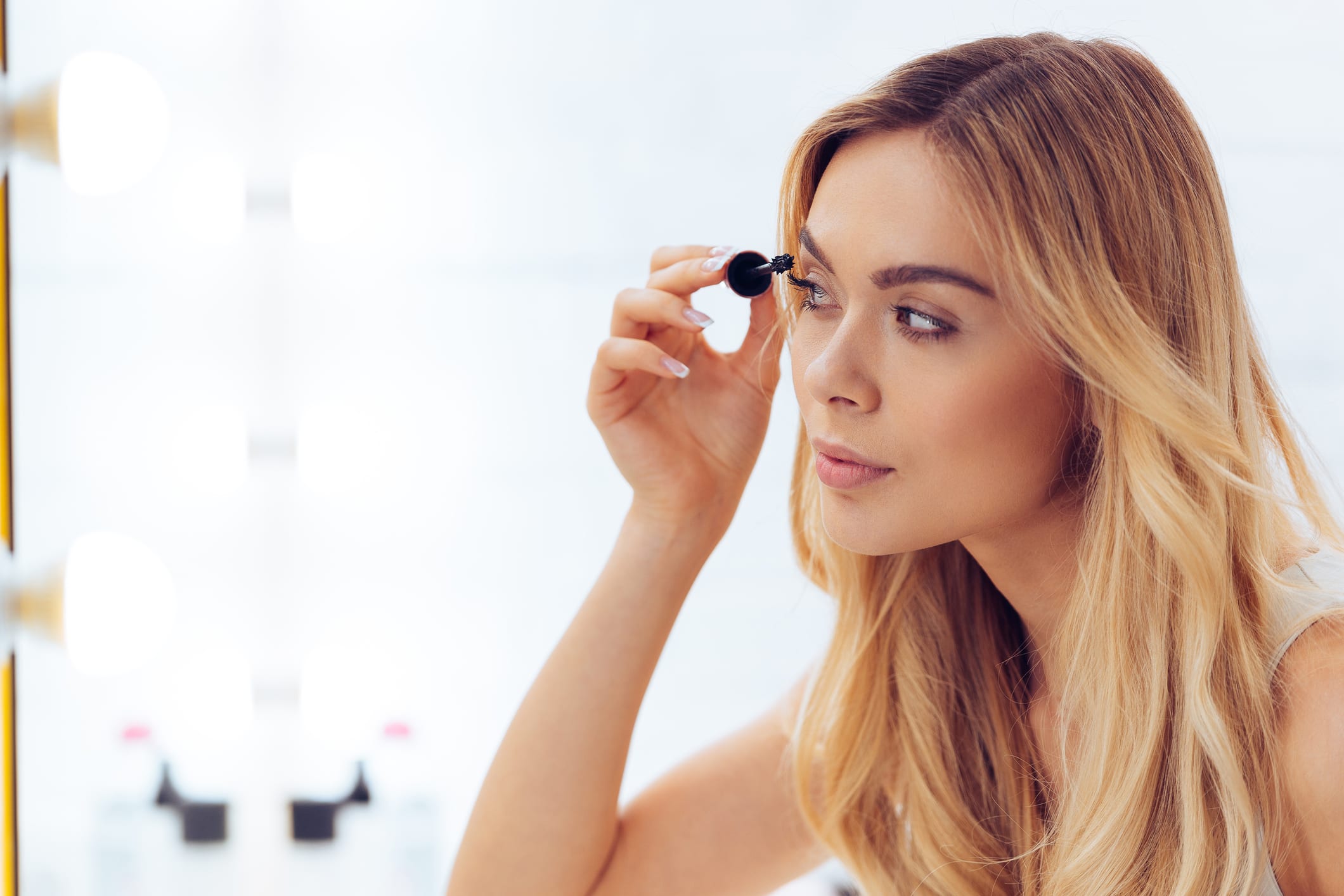Makeup is colorful, alluring, and stylish. These aren’t words that would typically describe something that’s potentially damaging and unsafe. Yet makeup can pose numerous threats to your eyes if you use the wrong type or apply it incorrectly. This is true whether you’re using minimal makeup or going all-out glam. These tips will help protect your sight in the blink of an eye:
DON’T USE SHARP OBJECTS
Corneal abrasions, or scratches on the clear part of the eye, are some of the most common eye injuries. They are painful and can trigger bacterial infections. Abrasions can occur when you try to separate your eyelashes using a pin, paperclip, or another sharp object.
DON’T WEAR FALSE EYELASHES
We all love the lush look of false eyelashes, but it comes at a price. Falsies’ adhesives can rub your eye’s surface, causing infections and abrasions. Worse, these abrasions can damage your vision, requiring treatment with laser surgery. If you have suffered this type of injury, the time-tested professionals at Florida Eye Specialist and Cataract Institute will give you caring and compassionate medical treatment.
BE CAREFUL WITH CONTACTS
If you wear contacts, you have to be especially mindful of safeguarding your eyes when selecting and applying makeup. Be careful with:
• Putting your contacts in — Lenses should be inserted before you apply makeup. If you put them in after applying it, you run the risk of transferring the makeup to the lens and contaminating it. Makeup debris may also get trapped behind the contact, causing discomfort and irritation.
Contacts should also be removed before removing your makeup. Wiping your face before you take them out could scatter makeup into your eyes and harm your lenses.
• Choosing the right mascara — Mascaras that imitate the look of false eyelashes are popular right now, but they’re not compatible with contacts. There are slews of mascaras available, but it is important to find one that doesn’t contain fibers. This is important for contact wearers because the flakes could fall into your eyes and irritate them.
• Using liquid eyeliner — Learning how to use liquid liner takes a little practice. However, it’s much safer than using an eye pencil. When you use a pencil liner, you’re putting pressure on a hard, pointy object which can damage your contacts, as well as your eyes. Liquid liner doesn’t need to be forced on.
DON’T SHARE MAKEUP
Never share makeup with anyone, even your very best friend. It’s tempting to try that luscious gold shadow or rich purple mascara, but you’ll risk getting your friend’s bacteria and your pal will risk getting yours.
REGULARLY CLEAN EYESHADOW BRUSHES
Eyeshadow brushes and brow brushes magnetize grime and bacteria. Avoid spreading these contaminants to your eyelashes, eyelids, and cornea by washing brushes weekly. Consider buying a quality brush cleaner to ensure that your applicators are thoroughly sanitized.
CHECK EXPIRATION DATES
You don’t have to play guessing games to figure out how old your eye makeup is. Its expiration date is on the packaging or directly on the product. Use a permanent marker to write due dates on new items to remind you when you need to get rid of them. Some rules of thumb for makeup shelf life are:
• Six months — Liquid eyeliner and mascara. (Don’t try to make dry mascara last longer by moistening it with water or, worse, saliva.)
• Twelve to 18 months — Retractable liner and concealer.
• Twenty-four to 36 months — Eyeshadow.
DON’T COLOR INSIDE THE LINES
Coloring inside the lash line can create a look of high drama, but it can also clog the eyelids’ oil glands, escalate dryness and cause styes. When makeup is this close to the eyeball, it can also spread to the cornea and cause irritation or infection.
TRY NEW PRODUCTS ONE AT A TIME
If you get scads of eye makeup products at the same time and have an allergic reaction, it’s going to be difficult or impossible to pinpoint the culprit. You’ll have to discard everything and regret all of the money you wasted.
Instead, try one product at a time and wear it for a few days. If you don’t experience any irritation or allergic reaction, you can bring the next one on board.
Just as makeup can enhance your eyes, it can also hurt them. Without proper products or applicators, you risk discomfort and infections. Florida Eye Specialist and Cataract Institute of the Tampa Bay, Florida area has 37 years of specialized makeup-related eye care services, among many other cutting-edge technologies.
We not only treat these issues but also offer in-depth suggestions regarding makeup that will be kind to your eyes.
Please contact us for more information. It’s clear to see, there’s only one choice in eye care.
Please note that not all the information in this article will work for everyone and that this article is not a substitute for actual in-person medical treatment.



